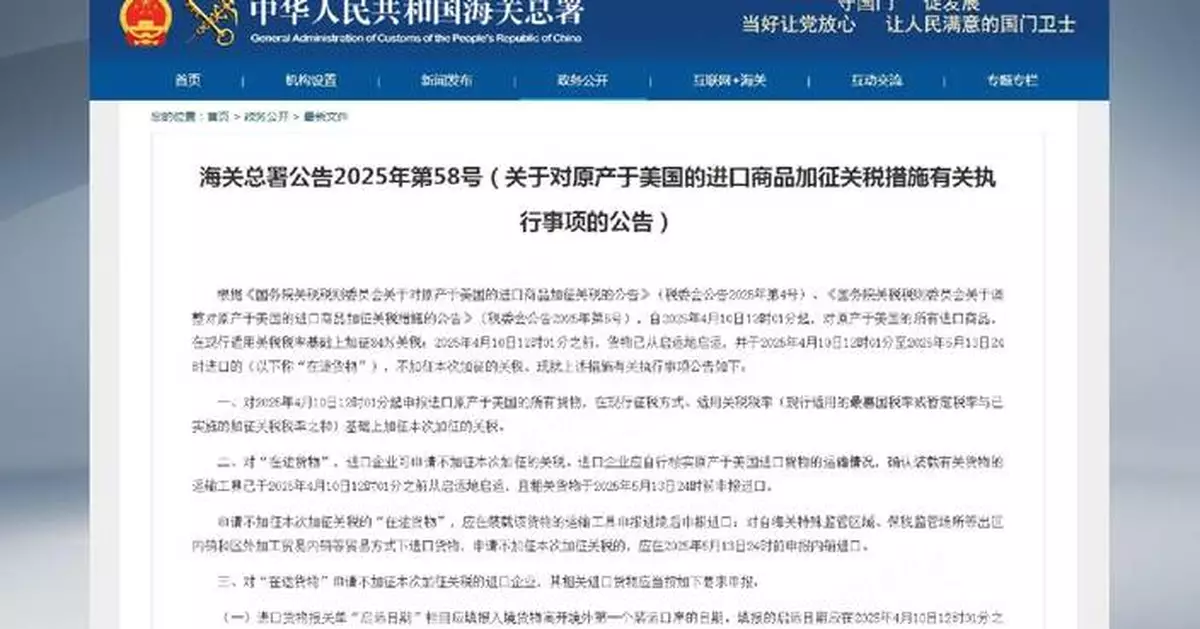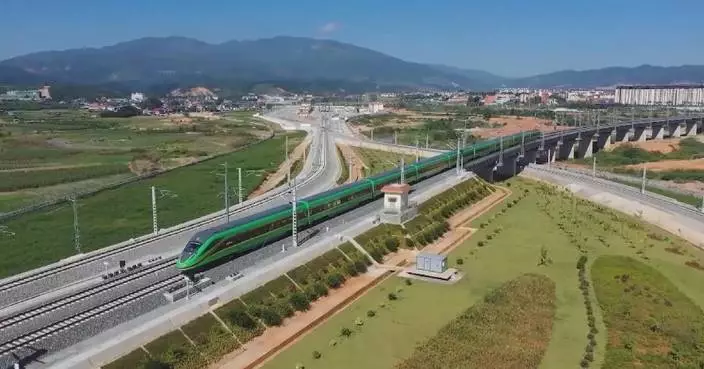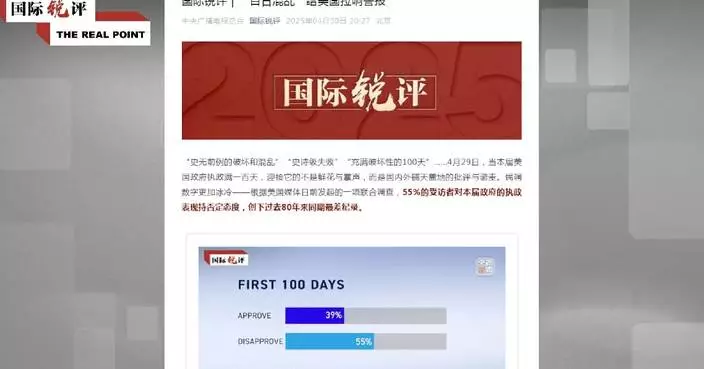China's General Administration of Customs (GAC) on Wednesday issued details on the implementation of an additional 84 percent tariff on imported U.S. products following U.S. tariff hikes.
The GAC posted an announcement on its website on Wednesday stating that, according to an earlier announcement from the Customs Tariff Commission of the State Council, China will raise the additional tariff on products imported from the U.S. to 84 percent, effective from 12:01 on April 10 (Thursday).
Goods that are exported from the place of origin before 12:01 on April 10 and imported to China between 12:01 on April 10 and 24:00 on May 13 will be considered as "in-transit goods” and will not be subject to the additional tariff.
According to the GAC announcement, from 12:01 on April 10 all goods declared for import originating from the U.S. will be subject to the additional tariff. This will be based on the current taxation method and applicable tariff rates consisting of the sum of the current most-favored-nation tariff rate or provisional tariff rate and the already implemented additional tariff rate.
For "in-transit goods," importers can apply for exemption from the additional tariff but are required to verify the transportation status of U.S.-origin goods, and confirm that the transportation vehicle carrying the goods departed from the place of origin before 12:01 on April 10, and that the relevant goods are declared for import before 24:00 on May 13.
For "in-transit goods" seeking exemption from the additional tariff, the import declaration should be made after the transportation vehicle carrying the goods enters China.
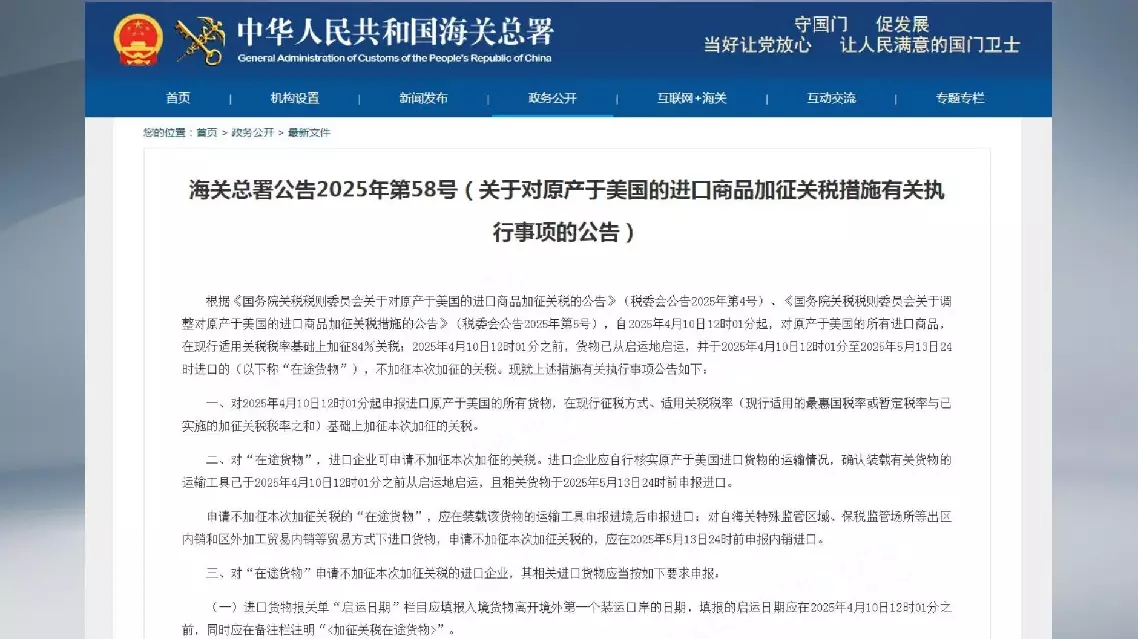
China releases details of implementation of additional tariffs on US goods
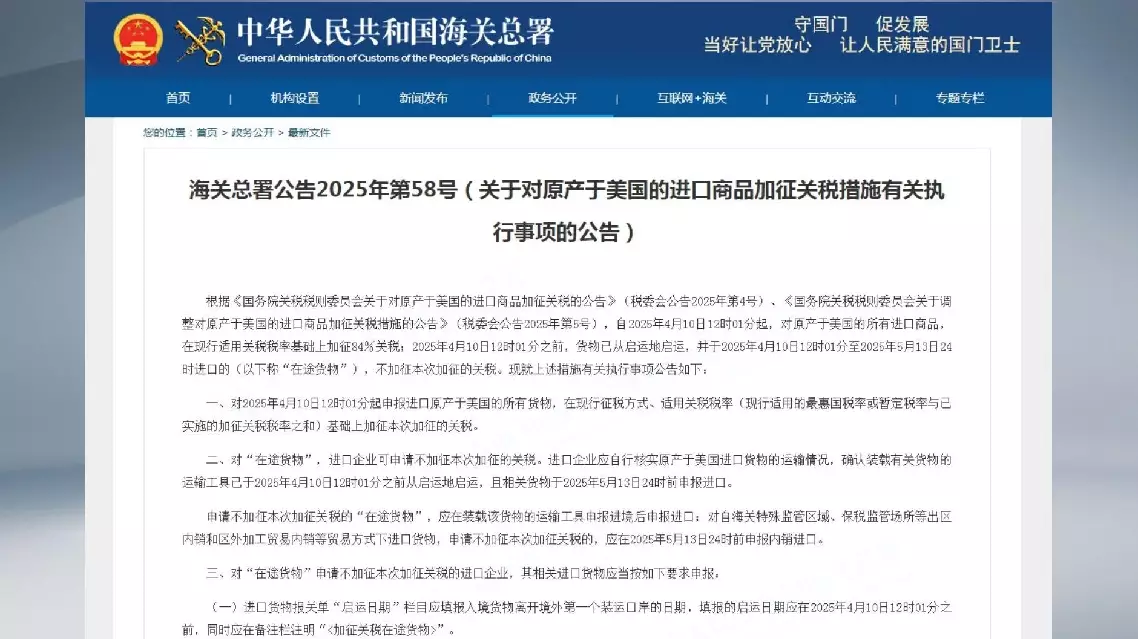
China releases details of implementation of additional tariffs on US goods
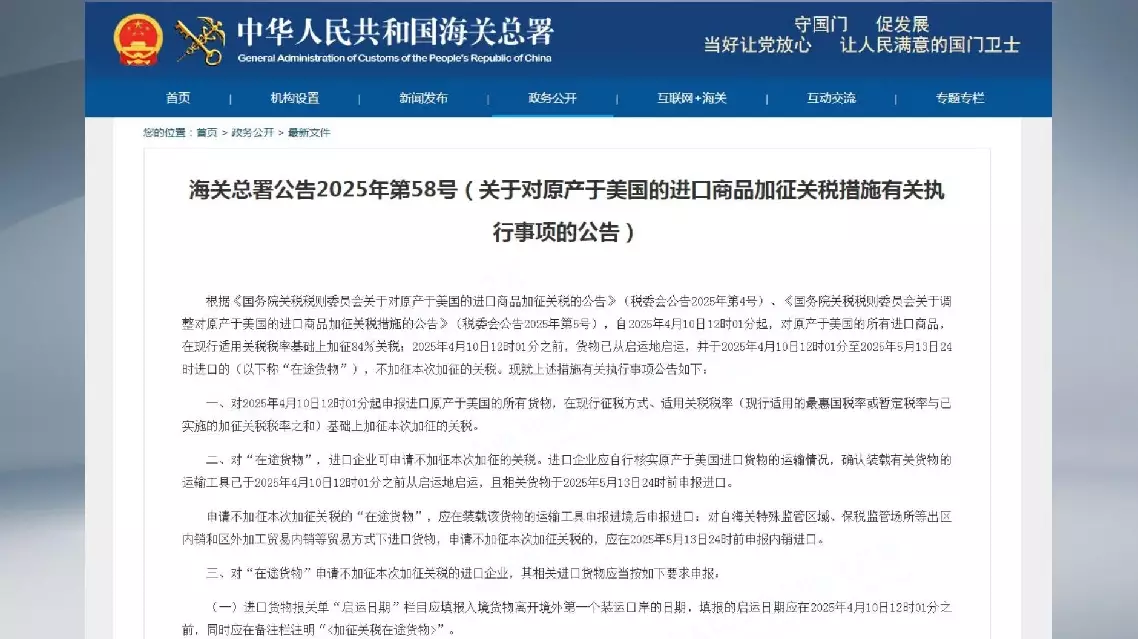
China releases details of implementation of additional tariffs on US goods
China's National Development and Reform Commission (NDRC) will work with relevant departments and local authorities to take concrete steps to promote the implementation of the newly passed private sector promotion law, a landmark legislation concerning a vast economic force in the country, said an NDRC official.
China's top legislative body -the National People's Congress - passed the private sector promotion law on Wednesday, establishing a legal backing for the steady and healthy growth of the key sector, including more than 57 million private firms and over 100 million self-employed individuals.
This landmark law is China's first fundamental legislation dedicated to the private sector. It will bolster confidence among the vast community by improving the business environment, fostering innovation, and ensuring fair competition, according to NDRC, the country's top economic planner.
"The private sector promotion law has actively responded to the key concerns in the development of the private sector. Efforts are made to establish and improve relevant systems and enhance the enforceability of the systems, from ensuring fair competition, improving investment and financing environment, supporting technology innovation, focusing on regulated operation, optimizing services and guarantees, and improving rights and interest protection, to strengthening legal accountability, so as to ensure that all forms of ownership can equally utilize production factors by the law, participate in market competition fairly, receive equal legal protection, further unleash their complementary advantages, and pursue common development," said Liu Min, deputy director of Private Sector Development Bureau under NDRC.
Liu added NDRC will continue to work together with relevant departments and local authorities to improve supporting systems and mechanisms and take concrete steps to promote the implementation of the private sector promotion law.
"We will make continuous and increasing efforts to remove barriers to market access and to fair competition, to address the issue of overdue payments to private enterprises, to protect the lawful rights and interests of private businesses and entrepreneurs by the law, to implement various relief policies, to help private enterprises shoulder their responsibilities of the era, so as to help translate legal systems into concrete actions and tangible outcomes that promote the high-quality development of the private sector," said Liu.

Concrete steps to take for firmly implementing China's landmark private sector promotion law: official





